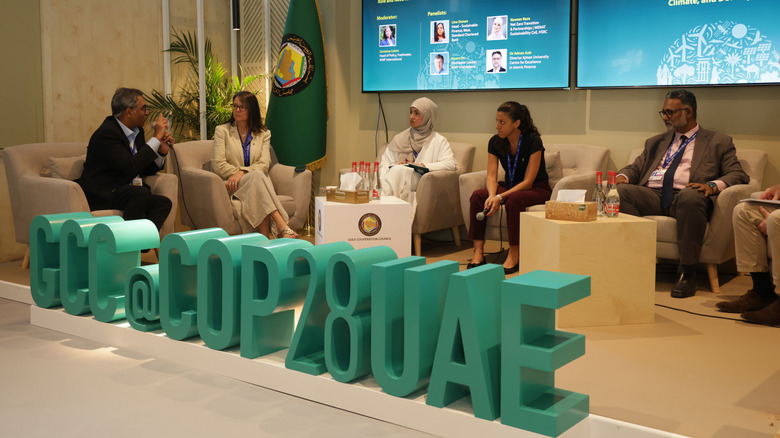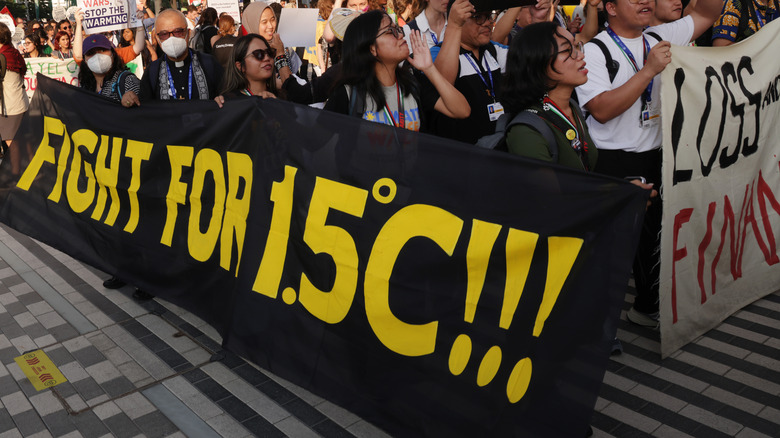Over $3 Billion Has Been Pledged For Food Issues Impacting Climate Change
When it comes to climate change, food is part of the problem. Whether it's filling a belly or filling a landfill, that food was produced and transported and possibly processed and cooked. That translates into water use and greenhouse gas emissions among other issues. Fortunately, food can also be part of the solution. Organizers of the 28th Conference of the Parties (COP28), the United Nations climate summit held in Dubai this year, announced that member countries have pledged more than $3 billion in funds to finance changes in food and agriculture systems to reduce the impacts of climate change.
Global food systems account for one-third of carbon emissions, contributing to global warming and increasingly severe weather systems that impact farmers and the food supply. This year's conference included an entire day's programming on food systems, Food, Agriculture, and Water Day.
Shovel-ready priority innovations heralded as good investments outlined in a press release from the COP28 include providing better weather forecasts to farmers along with digital access to agricultural reports, systems to protect people during times of crisis, better rainwater harvesting, improved fertilizers to reduce the need for synthetic chemicals, livestock management to reduce methane, and development of alternative protein sources. These areas of innovation target decreasing carbon emissions while also improving food security and the income and well-being of farmers globally.
Pledging change
Along with the pledged funds, 134 countries signed the COP28 UAE Declaration on Sustainable Agriculture, Resilient Food Systems and Climate Action affirming the need for change in their own national food and agriculture systems to mitigate climate change. UAE Minister of Climate Change and Environment, H.E. Mariam bint Mohammed Almheiri said, "There is no path to achieving the goals of the Paris Climate Agreement and keeping 1.5 C within reach, that does not urgently address the interactions between food systems, agriculture, and climate." That figure refers to the goal of preventing global temperatures from exceeding the preindustrial average by more than 1.5 degrees Celsius (2.7 degrees Fahrenheit), which experts believe will avoid the most devastating effects of climate change. However, there's little wriggle room, as the planet has already reached 1.1 degrees C above that benchmark.
The food and agriculture funding pledges are part of a larger group of overall financial commitments to fighting climate change made at the two-week conference, currently totaling over $83 billion, according to Reuters. Specifics on the pledged money areas of impact have not been disclosed fully, however, The Bill and Melinda Gates Foundation will donate $200 million along with the UAE to help small farmers in South Asia and Africa cope with the effects of climate on their crops.

